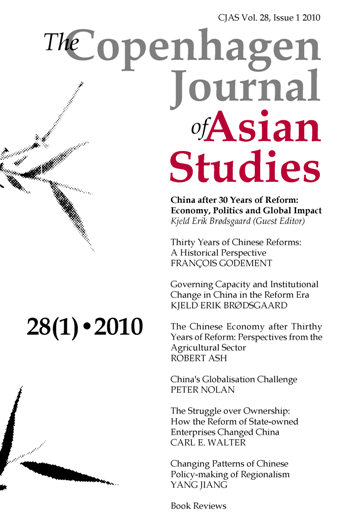Thirty years of Chinese reform:a historical perspective
DOI:
https://doi.org/10.22439/cjas.v28i1.2798Keywords:
China, Reform, political liberalisation, transition, consolidation, cyclical phaseAbstract
China's reform agenda is understood in the light of a thirty-year process. Interpretations of reforms differ according to the meaning of the word. Should Mao's heirs be seen as Leninist reformists, or as reformers in the historical Chinese sense, aiming at transformation in response to the West? The implications are contradictory. The reforms have been successful, yet their term has never been clearly defined. Reforms have been described alternatively as another phase in China's cyclical history, or as a transitional phase, or even as a change towards a hybrid regime with cultural Chinese features. China has had 'true reformers', aiming at fundamental change. Their legacy is still present and Chinese society is eager for economic and social debate. However, actual reform has reached a plateau. The Party's undiminished monopoly on political ideas, its legitimization through nationalist pride, its hold over the media and communications, as well as global vindication of its cautiousness, all hint of a neo-classical restoration era. However, a new wave of reforms may question again the nature of China's political system.Downloads
Published
2010-12-10
Issue
Section
Articles


